Jersey City Truck Accident Lawyers
We are a team of highly skilled personal injury attorneys. If you have a bodily injury legal issue in or around Jersey City, New Jersey, we can help. Call us today for a free consultation.
Jersey City Truck Accident Lawyers
Commercial motor vehicles include all vehicles over 10,001 pounds. But when fully loaded, a semi-truck and trailer can weigh up to 80,000 pounds. It’s no surprise that Truck accidents involving these massive vehicles can cause catastrophic injuries.
A truck crash attorney from Garces, Grabler & LeBrocq knows the challenges you face after suffering a severe injury from a collision with a truck. They also understand the losses and pain you experience after losing a loved one to a fatal truck crash. Our Jersey City truck crash lawyers are dedicated to fighting for justice and compensation against trucking companies that negligently cause collisions.
Causes of Truck Accidents in Jersey City
The Federal Motor Carrier Safety Administration (FMCSA) tracks accidents involving large trucks. The statistics developed by the FMCSA provide deep insight into the causes and effects of truck crashes in New Jersey.
The blame for truck crashes fell on the truck or its driver more than 55% of the time. In other words, truck crashes are slightly more likely to result from a problem with the truck or its driver than a problem with a passenger vehicle or its driver.
Bearing in mind that crashes can have more than one cause, some reasons for truck accidents include the following:
Mechanical Breakdowns
According to the FMCSA statistics, over 39% of commercial vehicle crashes involved a problem with the truck. Some mechanical breakdowns that lead to crashes include:
- Defective brakes
- Ruptured tires
- Bent wheels
- Damaged trailer hitches
- Broken cargo tie-downs
This number is extraordinarily high compared to the percentage of car accidents that result from vehicle defects. The National Highway Transportation Safety Administration estimates that only 2% of car crashes result from these kinds of mechanical issues.
Speeding
Also, according to the FMCSA, speeding is the top cause of crashes resulting from truck driver error. Truck drivers are under particular pressure to make delivery deadlines. As a result, they sometimes speed to make up time on the road.
Speeding can cause the driver to lose control of their vehicle, particularly in adverse weather conditions or when the roads are slick. For example, a driver could lose control of a semi-truck and trailer while speeding on wet roads, causing the vehicle to jackknife or even overturn.
High-speed vehicles also produce more energy when they crash into other vehicles. When combined with the massive weight of a semi-truck, this energy can destroy a smaller passenger vehicle and crush or kill its occupants.
Fatigue
Another product of delivery deadlines is truck driver fatigue. Tired truck drivers may suffer a degradation in their driving ability due to:
- Dozing off
- Decreased alertness
- Reduced reaction speed
The FMCSA imposes limits on a truck driver’s hours of service. These rules include:
- No more than 11 hours of driving after 10 hours of rest
- No driving past the 14th hour after 10 hours off duty
- At least one 30-minute break for every eight hours of driving
- No more than 60 hours of driving in seven days or 70 hours in eight days
The FMCSA uses electronic logs to automatically record truck drivers’ hours. But even with this technology, drivers and trucking companies can push beyond the limits, resulting in drowsy driving crashes.
Distracted Driving
Truck drivers are prone to distracted driving. For instance, they may try to multitask to improve efficiency and avoid boredom. Some tasks that can occupy a truck driver’s hands, eyes, or mind while driving include the following:
- Eating or drinking
- Talking on the CB radio
- Texting
- Adjusting the sound system
- Looking at a navigation screen
Distracted truck drivers cannot see or react to traffic or road hazards. Since trucks have a much longer stopping distance than smaller passenger vehicles, even a brief distraction can lead to a rear-end crash.
Impaired Driving
Truck drivers must pass drug and alcohol tests at several points during their careers, including:
- Before hiring
- Randomly
- After crashing
- Upon reasonable suspicion of drug or alcohol use
- When returning from a drug or alcohol suspension
Even with all these tests, some truck drivers manage to avoid detection. In other situations, the truck driver is impaired by a substance that the test doesn’t cover.
According to the FMCSA, only 3% of crashes result from alcohol or illegal drug use. Another 17% are caused by over-the-counter drug use. For example, cold medicine, allergy drugs, and other non-prescription medications can cause drowsiness and reduced alertness.
Improper Surveillance
Large trucks have poor visibility. The height of the truck cab makes it difficult for drivers to see pedestrians, bicycles, and small vehicles directly in front of the truck. The long trailer creates large blind spots along both sides of the 18-wheeler. And truckers cannot see anything behind them.
Truck drivers can lose track of the road users around them after only a moment of carelessness. They can collide with these undetected vehicles when accelerating, reversing, or changing lanes.
No Fee Unless
GGL Wins
Types of Truck Accidents
Truck accidents can happen in a few ways. For instance, collisions might occur due to:
Shifting Loads
The driver is responsible for checking cargo before hitting the road. If the load shifts during transit, it can throw off the balance of the trailer. As a result, the driver can lose control of the vehicle, causing a collision as the vehicle careens across the road.
The trailer may even roll over, particularly when driving in high winds or while making a turn. The overturning trailer may fall on top of a vehicle or land in its path.
It can also spill its cargo onto the road, leading to a collision or loss of traction by other vehicles. Even if a shifting load does not cause the truck to crash, other drivers may swerve to avoid a fishtailing trailer and collide with each other.
Loose Cargo
A driver who fails to secure their load may drop cargo while on the road. Cargo can slip off a flatbed trailer or fly out of a gravel carrier or dump truck. It can even fall through the unsecured doors of an enclosed trailer.
Loose cargo can then hit vehicles or fall on the road. When this happens, drivers can swerve and hit other vehicles, pedestrians, or cyclists.
Rollovers
A truck can roll over even when the cargo is properly secured. The truck or trailer might have damage to its suspension system that prevents it from handling the massive weight of the truck or trailer.
Trucks can also roll over when drivers take corners or curves at high speeds. The centripetal force pushes the trailer and its load outward. The hitch experiences enormous strain. With enough force, the trailer can detach and roll over.
Lane Change Collisions
The large blind spots can lead to crashes when truck drivers change lanes. Truck drivers are more likely to miss spotting a car next to them when they are drowsy or distracted.
Sideswipe collisions between passenger vehicles usually cause some damage and minor injuries. But sideswipe collisions between a large truck and a passenger vehicle can crush the vehicle or run it off the road.
Lane change collisions are also hazardous because the other vehicle can get trapped under the trailer. Compact vehicles and sports cars might fit between the truck and trailer’s axles.
Rear-End Collisions
Rear-end crashes happen when a truck smashes into your car from behind. These collisions often happen due to:
- Speeding
- Distracted driving
- Impaired driving
Rear-end accidents can cause severe injuries. Passengers in the back seat can get crushed, and the force of impact can give the front seat passengers whiplash or concussions.
Left Turn Across Path (LTAP) Crashes
LTAP crashes happen when someone fails to yield the right-of-way. The truck driver might turn left across your path, causing you to slam into the side of the truck as it turns. Alternatively, the truck driver might run a yellow or red light as you turn, causing a head-on or angle collision.
These collisions can push your engine into your engine compartment, crushing you. You can even get ejected through the windshield when a truck hits your vehicle head-on.
Common Injuries From Truck Accidents
The force of a collision involving a large truck can cause a range of injuries, including the following:
FATAL INJURIES
A truck crash can cause a fatal injury such as:
- Severe bleeding
- Traumatic brain injury
- Severed spinal cord
- Heart failure
- Respiratory failure
When a truck crash victim dies, their executor or personal representative can pursue a wrongful death claim against a negligent trucking company. To win this claim, the plaintiff must prove the trucking company’s negligence caused the fatal injury.
BRAIN INJURIES
Your brain controls your entire body. The organ also gathers sensory perceptions from your eyes, ears, nose, tongue, and skin to understand your surroundings. When your brain sufferers damage, you can experience physical, cognitive, and emotional symptoms like:
- Headache
- Loss of vision, hearing, or other senses
- Paralysis
- Muscle weakness
- Numbness and tingling
- Confusion and brain fog
- Memory loss
- Difficulty concentrating
- Angry outbursts
- Personality changes
Minor brain injuries include concussions, which occur when your brain shakes inside your skull. The pressure exerted by the cerebrospinal fluid and meninges holds your brain in place, but it also damages the brain cells. As your brain swells, you develop temporary symptoms that usually last two months or less.
More serious injuries include cranial contusions, diffuse axonal injuries, and subdural hematomas. These can cause permanent brain damage, coma, or even death.
SPINAL CORD INJURIES
The spinal cord carries all the nerve signals between your brain and your body. These include autonomic signals to control involuntary systems and motor signals to control voluntary movement.
Spinal cord injuries happen when something compresses or severs the spinal cord. When this injury occurs at the base of the skull, the victim could die from paralysis of the chest muscles that enable breathing. When it happens lower in the spine, you can experience the following symptoms below the level of the injury:
- Paralysis
- Weakness
- Numbness
- Tingling
- Loss of sensation
- Loss of sensitivity to temperature or pressure
- Loss of fine motor skills
Doctors cannot repair a severed spinal cord and can occasionally relieve pressure on a compressed spinal cord. But whenever doctors work near the spinal cord, they risk causing permanent spinal cord damage.
AMPUTATIONS
Amputations happen in two circumstances. The first occurs when you suffer such severe tissue damage that doctors must remove the affected body part to save your life. The second is a traumatic amputation, which happens when your truck collision tears or severs a body part.
Doctors may be able to save a body part that has suffered grievous damage or even been severed from the body. But the success of these efforts depends on the condition of the blood vessels.
Every cell requires oxygen carried by the blood. When you suffer severe vascular damage, the cells do not receive oxygen. Rather than allowing the tissue to die and cause gangrene, you will need to undergo an amputation.
BONE FRACTURES
The enormous forces your body experiences in a truck collision can fracture or shatter your bones. For example, if a truck hits you head-on, the engine may crush the passenger compartment. The mangled sheet metal can fracture your leg and trap it.
Fractured bones usually heal in six to eight weeks. But if a crash shatters your bone into three or more pieces, you may require reconstructive surgery to assemble the bone fragments. After surgery, your bone could take up to a year to heal.
Liability in a Truck Accident Case
Liability in a truck accident case will usually take two forms. First, trucking companies are liable for the negligence of their employees. Second, trucking companies are liable for negligence attributable directly to the company’s operations. Some examples of these types of negligent actions include:
- Negligently hiring or retaining an unqualified driver
- Negligently administering drug and alcohol tests
- Concealing the outcome of drug and alcohol tests
- Negligently maintaining or repairing company trucks
In either case, the truck company will be liable for your economic and non-economic losses. Your economic losses encompass the financial impact of your injuries. Some examples include your medical costs and wage losses.
Non-economic losses include all the ways your injuries affected your quality of life, such as by causing pain, suffering, disability, dismemberment, and disfigurement. They do not come with a price tag. Instead, they diminish your ability to enjoy life.
Under federal law, interstate trucking companies must carry at least $750,000 in financial responsibility. These companies can use a combination of liability insurance policies and surety bonds to reach this minimum. Surety bonds are like insurance policies, but the trucking company must repay the surety if it has to pay an injured accident victim.
After a crash caused by a negligent truck driver or trucking company, you and your Jersey City truck accident lawyers will file a claim explaining what happened and how it affected you. A claims adjuster will investigate the claim and determine whether and how much the insurer and surety will pay.
What if You Are Partly Responsible for the Truck Accident?
New Jersey uses a doctrine called comparative negligence to determine each party’s fair share of the blame. If you are partly responsible for a truck accident, a claims adjuster or jury will assign a share of the blame to you.
If your share is over 50%, you cannot pursue an injury claim. If your share of the blame is less than 50%, you and your Jersey City truck accident lawyers can pursue a claim, but your damages will be reduced by the percentage of your share. Thus, if a claims adjuster assigns you 10% of the blame, you can only recover 90% of your losses.
Why Hire GGL?
For over 30 years, Garces, Grabler & LeBrocq has provided professional, aggressive, and knowledgeable personal injury representation to accident victims in Jersey City and throughout the state. Since the firm’s founding, we have successfully recovered $1 billion in injury compensation for injured clients like you.
When you hire our firm, we treat you like part of the family. We understand your challenges and dedicate ourselves and our resources to getting a fair outcome in your case. Contact us online or at 1-800-923-3456 to discuss your truck accident and how we can help you fight for injury compensation.
No Fee Unless
GGL Wins
We've got you covered.
We are available 24/7/365

OFFICIAL PARTNER OF RUTGERS ATHLETICS
Jersey City Truck Accident Lawyers
Address: 3000 John F. Kennedy Blvd. Suite 311 Jersey City, NJ 07306
Phone: (201) 695-1000
Open 24/7 365
Office:
8:30-6:00 Monday
8:30-6:00 Tuesday
8:30-6:00 Wednesday
8:30-6:00 Thursday
8:30-6:00 Friday
Recent GGL Wins
Medical Malpractice
A 30-year-old pregnant woman went into labor. The doctor failed to take proper steps in the baby’s delivery, making the mother wait in the hallway for ten hours while the baby’s heart rate began to drop. The baby was delivered via C-Section; he was blue from lack of oxygen resulting in Cerebral Palsy.
$14 Million
Verdict
Construction Accident
Mediation award resulting from an industrial explosion causing disfiguring burns and severe orthopedic injuries.
$7,8 Million
Verdict
Auto Accident
31-year-old man who was cut off by another car causing his car to flip over. He sustained head injuries, facial injuries, and half of his pinky finger was amputated.
$3 Million
Verdict
No Fee Unless
GGL Wins
Request A Free Consultation
We've got
You covered
We are available 24/7/365

